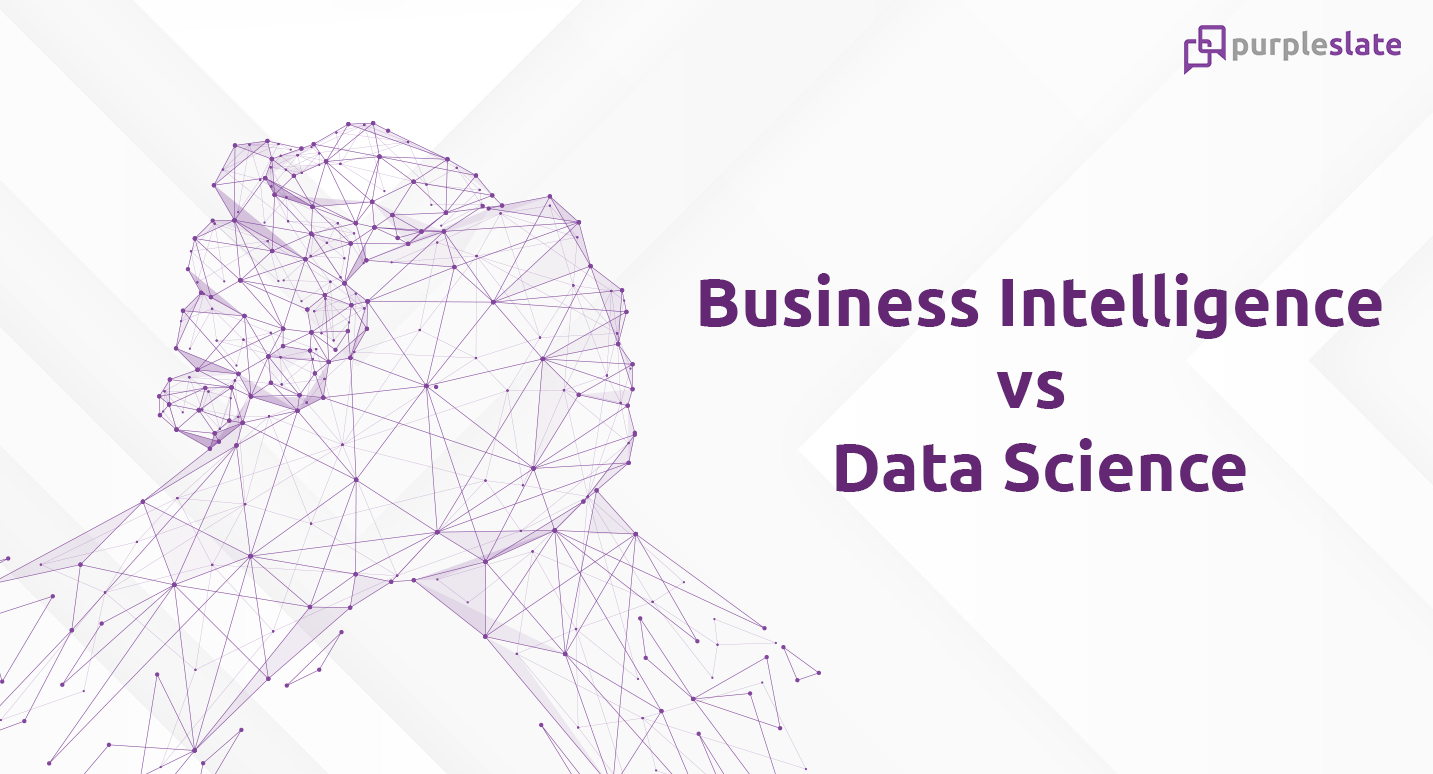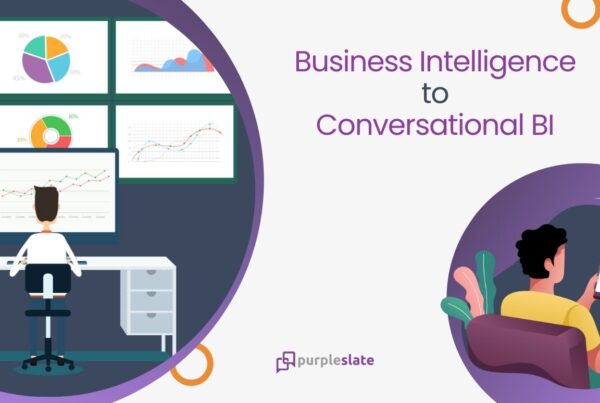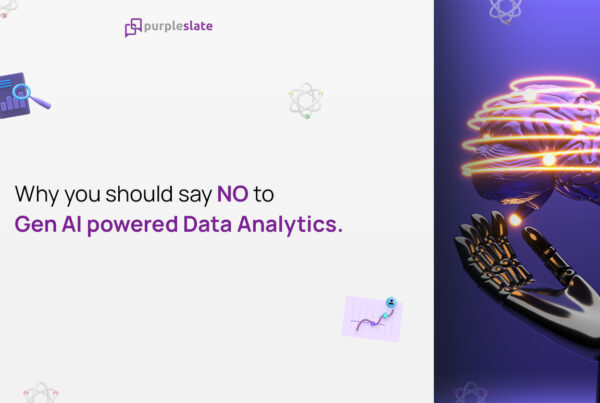
Introduction
In the modern business environment, many (if not all) strategies and decisions are centered on data. Companies use various methods to generate value and actionable insights from data. Business intelligence (BI) and data science are commonly used approaches to derive value from large data volumes.
While BI and data science are commonly used interchangeably, these concepts differ significantly in terms of why, what, how, and who works with the data. So, what’s the actual difference between the two? What is their importance in the business world? How do they drive business decisions? Keep reading to find out more.
Business Intelligence Definition
Business Intelligence is a collection of technologies, processes, and applications that companies use to create and communicate strategic insights from the available business data to drive their decisions. These tools and technologies are often automated, allowing users to quickly understand and visualize information.
The main role of BI is to offer a clear understanding of a company’s historical and current data. Business intelligence has significantly evolved over time. However, communication remains its core purpose.
Importance of Business Intelligence
The amount of generated business data is increasing rapidly, thanks to the high use of digital platforms, websites, and applications in the business sector. This increase in data volume creates a higher demand for business intelligence to help users and business managers get a detailed snapshot of the business information. For instance, if many customers complain about a specific product feature, its product development team will need to up their game and fix the issue before it damages the brand’s reputation.
Simply put, BI tools provide a comprehensive overview of business data, helping managers make informed decisions and identify various areas of improvement. Companies can better understand their customer need and tailor them accordingly, thanks to the power of BI tools. This leads to improved organizational efficiency and customer experience.
Data Science Explained
In simple terms, data science is a process of generating value from large data sets and developing forecasts. As a field, data science embraces multiple sophisticated analytic tools, such as machine learning, advanced programming, and statistics, to create actionable insights from random company data. So, what does the data science process entail? Why the struggle with Data Science? As a complex process, data science involves multiple steps.
What Does the Data Science Process Involve?
Data collection and maintenance. As a data-driven process, data science starts with collecting and retaining the data to be analyzed.
Process data. Since the collected data is in different formats (unstructured and structured), it must be processed through various methods like summarization, modeling, and data mining.
Data analysis. In this stage, data science experts use sophisticated tools and technologies such as predictive and descriptive analytics, regression, and text mining, to generate hidden patterns behind the data and predict future trends.
Is Data Science Important?
Companies often invest significantly in data science to acquire data scientists and tools to analyze data. You may be perplexed, is it even worth it? The answer is a big YES! Data science is worth every penny, considering the increasing uncertainty in the business world.
Data science provides a guide through which organizations can forecast, prepare, and maximize their operations. Also, it plays a crucial role in improving user experience, an aspect that drives customer loyalty. Data science helps personalize services and tailor them according to the user’s preferences. Each customer is served uniquely based on their preferences, which they take pride in.
An example of a real-life data science application is in streaming giants like Netflix and Amazon Prime. These companies recommend entertainment content based on your last viewing history and preferences. Therefore, you spend minimal time searching for similar content as they provide related content “you may like.”
How Do Business Intelligence and Data Science Relate?
If you ever confused data science with BI, perhaps there’s a reason. The two concepts have some key similarities. For instance, they are both data-focused and drive business decisions. However, do not let that fool you because the two differ in many ways worth setting them apart.
What Are the Differences between Data Science and Business Intelligence?
BI and data science differ in various aspects, including:
Data Types
BI uses structured data stored or warehoused in data silos. On the contrary, data science works with various data types, including structured, unstructured, and semi-structured, leading to more time devoted to cleaning and improving data quality.
Focus
Business intelligence focuses on what’s happening presently, while data science concentrates on future actionable insights. BI relies on historical data, helping develop a responsive course of action. On the other hand, data science develops predictive models, helping identify future opportunities.
Business Value
While both tech concepts focus on generating value, they differ in the type of value they bring. BI drives immediate organizational decisions, and data science focuses on developing crucial insights that inform long-term strategic planning decisions.
Complexity
Business intelligence requires fewer resources, is less costly, and is more practical in day-to-day business management. On the other hand, data science is complex in various aspects, including the ability to forecast and control dynamic data. Also, data science needs more sophisticated technical skills, such as data mining, advanced statistics, domain knowledge, and coding.
How Do BI and Data Science Drive Organizational Decisions?
The increasing amount and availability of data have led to organizations relying on data to generate value and crucial insights that inform their decisions. BI helps companies to make decisions based on previous data and performance. These decisions are usually more responsive than preemptive. On the other hand, data science is forward-looking and is used to determine and establish future courses of action and strategic planning.
Final Thought
The line between BI and data science may seem blurred due to their related end goals. However, they differ in various elements like focus and complexity. However, these two concepts are crucial in any organization as they help examine the past, present, and future using data. This element is vital to retaining the company’s competitiveness thanks to the enhanced ability to make informed decisions, spot improvement areas, and address key business issues. Simply put, they are the future of the business world.
Was this article interesting? Leave your thoughts in the comments section. Follow our blog for more related articles.




